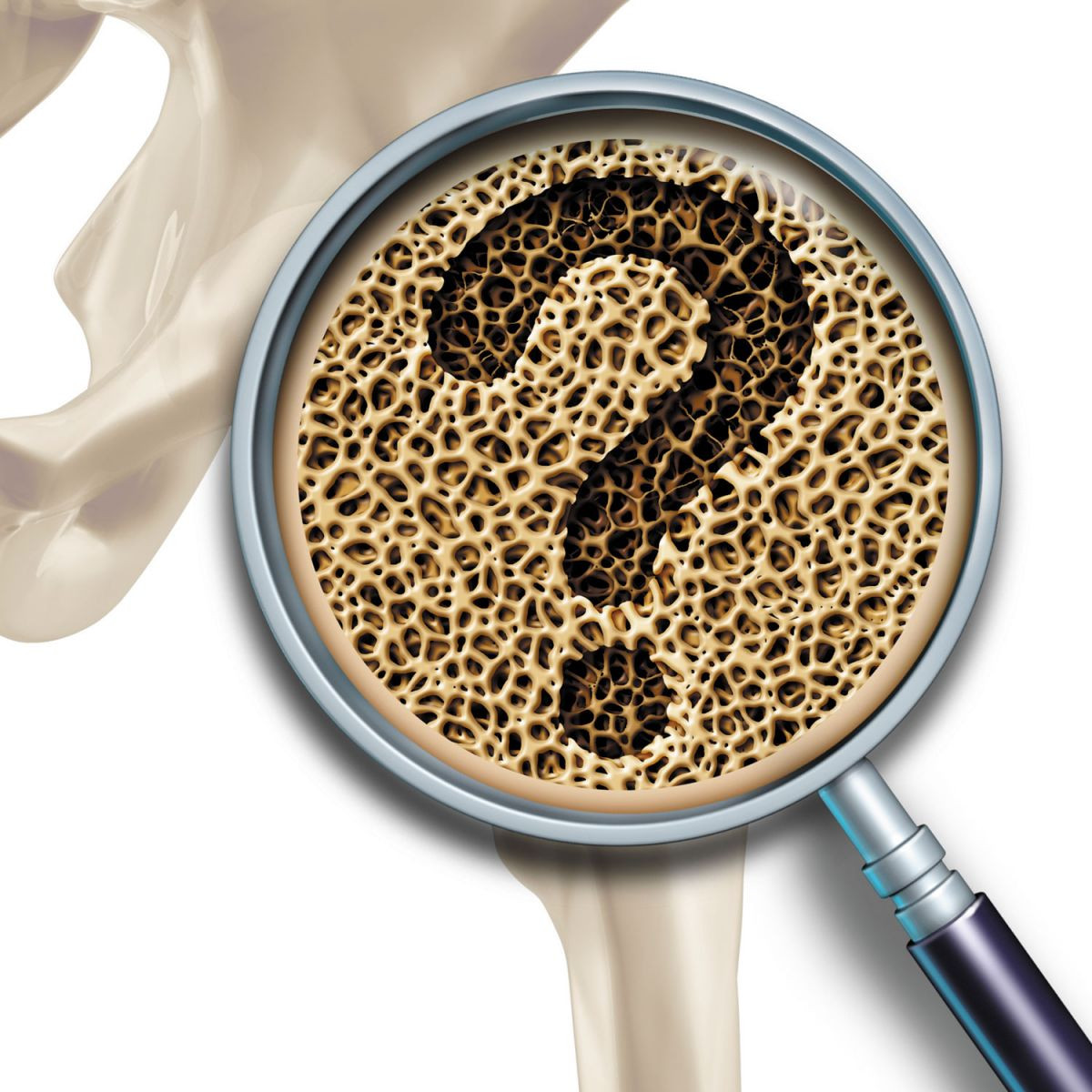
Trying to lose weight? Be careful not to lose muscle

Is your skin problem actually an autoimmune condition?

People with diabetes face higher risk of hearing loss

Antibiotic-free fixes for recurrent UTIs

Musculoskeletal syndrome of menopause: When menopause makes you ache all over

When can older women stop getting mammograms?

To lose weight, especially harmful belly fat, combine diet and exercise

Can men hold off on treating recurring prostate cancer?

The 7 types of rest and why we need them all

What are the early warning signs of cervical cancer?
Medical Tests & Procedures Archive
Articles
Should you be tested for weak bones?
| Image: Thinkstock |
Men also get osteoporosis—but consider your risk factors before deciding to have a bone-strength test.
Men's and women's bodies differ in plenty of ways, but we all have bones, and with aging they may lose some of their strength and leave us more vulnerable to dangerous fractures of the hip or spine. Osteoporosis is not exclusively a women's health issue.
Repairing a bulging aorta from within is safest in the short term
Minimally invasive surgery for a bulging artery below the heart is much safer than open surgery in the short term, but the advantage fades over time, according to a study in The New England Journal of Medicine.
An abdominal aortic aneurysm (AAA) occurs when a portion of the aorta, the main blood vessel carrying blood from the heart to the lower part of the body, becomes enlarged and bulges out. If the bulge ruptures, it is usually fatal. This condition is more common in older men than in women.
Powerful gene editing technique may pave the way for new cures
The CRISPR technique has the potential to edit |
The technology is promising, but scientists are calling for controls on how the method is used.
Tests for hidden heart disease
Electrocardiograms, which monitor the heart's electrical patterns, don't reliably reveal the risk of having a heart attack. |
Unless you have symptoms of a heart problem, taking a cautionary look under the hood is unlikely to help—and could even be harmful.
Ask the doctor: New DNA-based test for colorectal cancer
Q. I heard that there is a new stool test for colon cancer screening. Can this test replace colonoscopy for me? I am 68 years old with no history of colon problems, and my last colonoscopy was normal.
A. Among screening tests for hidden colorectal cancer, colonoscopy remains the "gold standard" because it's the most effective technique for detecting colon cancers and simultaneously provides an opportunity to remove any precancerous growths (polyps). The new DNA-based stool test (Cologuard) is less invasive and inconvenient than colonoscopy and finds more cancers and polyps than older stool tests, but it does not entirely eliminate the need for colonoscopies.
Can't wait to see the doctor? You have choices
Emergency rooms, urgent care clinics, and retail clinics offer immediate care. Your symptoms determine which to use.
You've probably had an illness or injury that you weren't quite sure how to handle. Maybe it was a rattling cough, a finger slammed in a car door, or a rash crawling up your arm. If you can't get in to see your doctor, you have a few options for immediate treatment—the clinic at the nearby shopping mall, an urgent care center, or the emergency room at the nearest hospital. How do you decide which one to go to?
What's involved in memory screening and testing?
Checking for underlying conditions is the first step when investigating a change in thinking skills. Image: Thinkstock |
A mini mental status exam or a thorough cognitive assessment can give you answers and may improve your qualify of life.
There is something you can do about Alzheimer's disease-join a study
Thousands of volunteers are needed for current Alzheimer's studies. |
Women are at greater risk for dementia. Joining clinical trials can help to speed the development of promising drugs.
Abdominal aortic aneurysm: When you need this one-time test
Family history or past smoking both point to higher risk for this potentially fatal condition.
How many "lifesaving" medical tests have you been offered lately? One frequently marketed to older men is an ultrasound of the abdominal aorta, the large artery below the heart that feeds the lower body. A bulging weak spot there—an abdominal aortic aneurysm (AAA)—could eventually rupture, and that is usually fatal.
What you should know about anesthesia
Many procedures require anesthesia, and which of the four types you have can affect your recovery.
If you've ever had a tooth filled without Novocaine, you know the difference anesthesia can make. Anesthesia—whether it numbs your mouth or puts you into a full sleep—is designed to keep you comfortable during a procedure that otherwise might be hard to tolerate physically, emotionally, or both. "We have four goals: to see that you have no pain, that you're drowsy or unconscious, that your body is still so that the surgeon can work on it, and that you aren't left with bad memories of the procedure," says Dr. Kristin Schreiber, an anesthesiologist at Harvard-affiliated Brigham and Women's Hospital.
There are four basic kinds of anesthesia—local, which is typically administered to numb a small area; regional, which numbs a larger area, like your hand, arm, or foot; neuraxial (spinal or epidural), which is injected near the spine and numbs the lower half of your body; and general, which works in the brain to render you completely unconscious and unable to sense pain. The type used depends upon the procedure you're having, your state of health, and, often, your preferences.

Trying to lose weight? Be careful not to lose muscle

Is your skin problem actually an autoimmune condition?

People with diabetes face higher risk of hearing loss

Antibiotic-free fixes for recurrent UTIs

Musculoskeletal syndrome of menopause: When menopause makes you ache all over

When can older women stop getting mammograms?

To lose weight, especially harmful belly fat, combine diet and exercise

Can men hold off on treating recurring prostate cancer?

The 7 types of rest and why we need them all

What are the early warning signs of cervical cancer?
Free Healthbeat Signup
Get the latest in health news delivered to your inbox!
Sign Up











